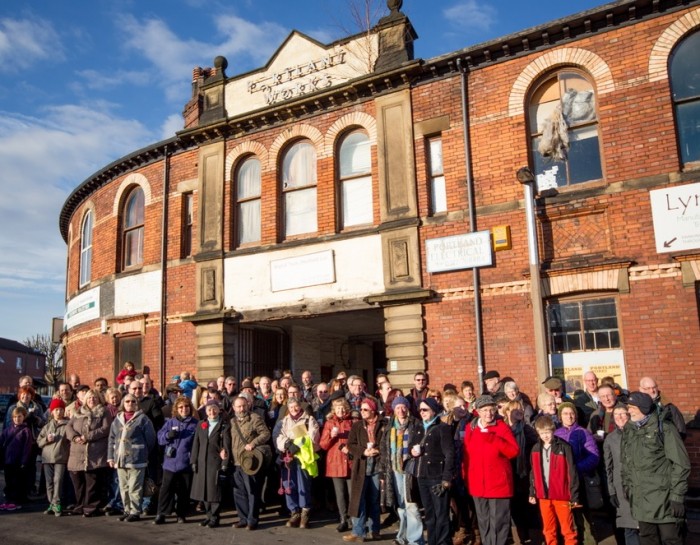Sheffield, England is a city long shaped by economic change, and a new grassroots program aims to refresh this dynamic through reinvestment in arts, crafts and the local economy.
The Portland Works in Little Sheffield was the first factory in the world to make stainless steel cutlery, then sold around the world. Today, in pockets of the building, you can still find metal trade micro-businesses that use some of the original machinery and tools that have been there since the beginning.
In recent years, in the form of a co-operative and community benefit society, they and others have come together to renovate the building and safeguard the heritage. The aim is to return the works to its original purpose of manufacturing, and linked crafts and arts, with an explicit goal of supporting small businesses and benefiting the wider community.
In this urban part of central Sheffield, Portland Works has come together with Regather, a trading co-operative and social action center nearby which leads a number of community projects and enterprises.
They are working together to promote a habitat for local independent enterprises to grow and thrive together, including access to work and training.
This is one of fifty fledgling community economic development initiatives underway within the Government’s DCLG Community Rights programme. The communities are located across the country – from Penzance, to South Shields, Carlisle to Great Yarmouth This link takes you to a map of them across England.
The program is a new one and is led by Co-operatives UK, working in close partnership with New Economics Foundation, Locality, Community Development Finance Association and Community Development Foundation – with encouragement from wider experts such as the Centre for Local Economic Strategies and Transition Town REconomy Network.
In line with the core ideas of community economic development – a model of local economic renewal that has a strong heritage and one that is quite distinct to municipal- and investor-led regeneration. They are looking at a range of bottom up models, described in our report by David Boyle of the New Weather Institute, Ultra-Micro Economics – ranging from employment and skills, enterprise development, local purchasing, anchor organisation local procurement, social enterprise and investment, high street retail, urban regeneration, food and agriculture.
In Broughton in Salford, for example, one of the most deprived wards in Greater Manchester, the community co-operative Involved is connecting up local shopkeepers and business owners to work together to strengthen the local economy.
In Selby in North Yorkshire, the focus is on making a step change in the distribution and sales of local food. The Vale of York has fertile land, cooler summers and milder winters, but the food is all shipped off for sale elsewhere – and only a quarter of local people eat their five a day. Led by the community business, Tadcaster and Rural CIC, the hope is to use a rich, local asset to improve local jobs and local health.
It is still very early days in the program, focusing on planning ahead, and despite increased talk of devolution within England, the value of community economic development is not one yet recognized and championed by its natural allies in the municipal, small business and third sectors. We want to change that.
We will be publishing a guide, for example, through the New Economics Foundation, and putting a resource bank online drawing on worldwide practice, led by the Community Development Finance Association.
About the Author:
Ed Mayo is Secretary General of Co-operatives UK, and Vice President of Cooperatives Europe.
This article (& photo credit) originally appeared in Ed’s blog.

